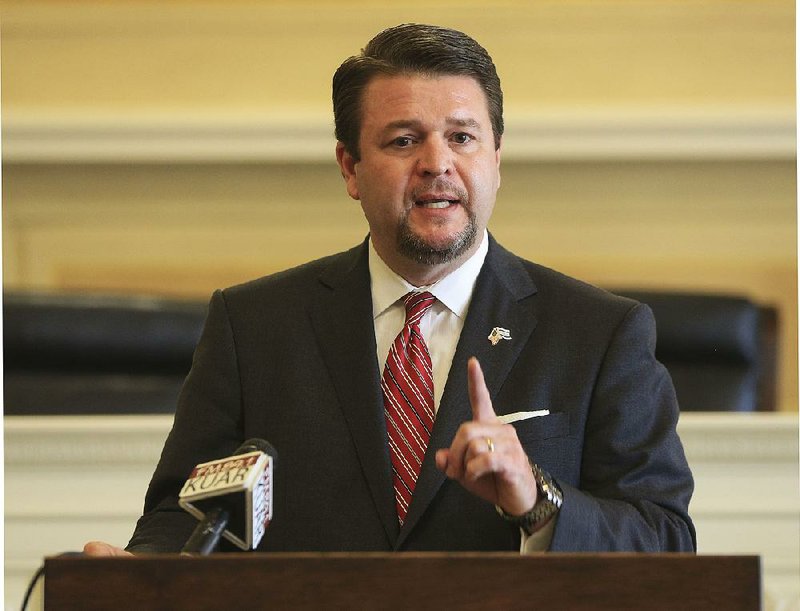The Arkansas Legislature moved a step closer Monday to approving a third constitutional amendment to refer to voters in 2022, with a House committee advancing a proposal focused on religious liberty.
Senate Joint Resolution 14, by Sen. Jason Rapert, R-Conway, proposes adding an amendment to the Arkansas Constitution that prohibits the government from burdening a person's freedom of religion unless the government can demonstrate that it furthers a compelling government interest and is the least restrictive means of furthering that interest.
SJR14 was approved by the House Committee on State Agencies and Governmental Affairs on a divided voice vote after some committee members raised questions about the amendment's language.
House sponsor Rep. Jimmy Gazaway, R-Paragould, said the proposal uses the same language as an Alabama constitutional amendment, which voters there approved in 1998. That law has not faced a federal challenge, he said.
More than 20 states have enacted their own versions of the federal Religious Freedom Restoration Act, which states that the government must have a compelling reason for programs that substantially burden religious beliefs. Arkansas did so in 2015.
Rep. Josh Miller, R-Heber Springs, said SJR14 seemed redundant. Gazaway said courts and opinions change over time, so the state should put forth the strongest language possible.
Gazaway added that the amendment might not stop federal overreach, but it was important to make a strong statement as a state. He said SJR14 would be a barrier to infringements on religious freedom at the local level.
Rep. David Whitaker, D-Fayetteville, said he was concerned that current Arkansas law states that a government shall not substantially burden a person's exercise of religion, while the proposed amendment doesn't specify a substantial burden.
"I think it sets us in a weaker position were this to be challenged under the First Amendment," Whitaker said.
Gazaway said the proposed amendment would provide a stronger protection for religious freedom because it would only have to be proven that the government was burdening religious liberty, not that it was a substantial burden.
"I'm not sure that's a dramatic departure, but I think it's one that most Arkansans would welcome to protect their religious freedom," Gazaway said.
Gazaway added that he believed the amendment would be popular with voters in 2022 and likely pass. He also said the Legislature should put in place the protection while it has the opportunity to do so.
"There may come a day when you wish you had these protections in the Arkansas Constitution," he said.
Miller said he still didn't see the measure as anything other than an "attention-getter."
"We're doing something that really doesn't do anything," Miller said.
Rep. Nelda Speaks, R-Mountain Home, said she would vote for the measure after seeing churches closed in 2020 due to the covid-19 pandemic.
"I'm not so sure that we don't need something like this to remind the people that we don't have to buckle down to some of those things," Speaks said.
The American Civil Liberties Union of Arkansas said SJR14 would be one of the most extreme measures of its kind in the country and would subject Arkansans to discrimination.
"The unintended consequences of this measure would be severe and far-reaching, giving people a basis to challenge and exempt themselves from virtually any state law," Holly Dickson, executive director of the ACLU of Arkansas, said in a written statement.
The Arkansas Legislature has already completed action on referring two constitutional amendments to voters in 2022: a proposal to raise the threshold for approval of proposed constitutional amendments and initiated acts from a simple public majority to 60% and a measure to allow the Legislature to call itself into special session.
Proposed constitutional amendments that originate in the Legislature don't require approval from the governor like bills do.
